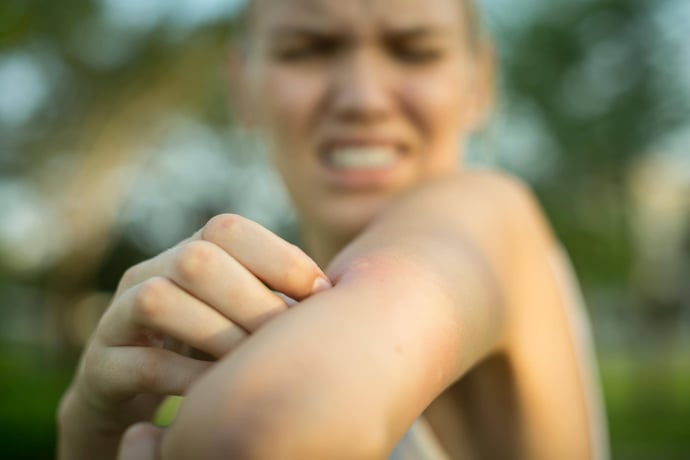Eczema is a common skin condition that affects millions of people worldwide. It causes red, itchy, and inflamed patches on the skin and can be a chronic condition that requires management. In this article, we'll explore natural remedies and lifestyle changes that may help soothe and manage eczema symptoms.
Natural Remedies
Moisturize
Moisturizing is an essential part of managing eczema. Using a thick, fragrance-free moisturizer1can help soothe and protect the skin barrier. Apply the moisturizer immediately after bathing or showering to lock in moisture.
Use Oatmeal Baths
Taking an oatmeal bath can provide relief for itchy skin caused by eczema. Add a cup of finely ground oatmeal to a warm bath and soak for 15-20 minutes. This can help soothe the skin and reduce inflammation.2
Aloe Vera
Aloe vera gel can provide relief for mild eczema symptoms. Apply a small amount of aloe vera gel to the affected area several times a day.3 Aloe vera has anti-inflammatory properties that can help soothe the skin
Coconut Oil
Coconut oil is a natural emollient that can soothe and hydrate the skin. Apply a small amount of coconut oil to the affected area several times a day.4
Lifestyle Changes
Identify Triggers
Identifying triggers can help manage eczema symptoms. Common triggers include stress,certain foods, detergents, and fragrances. 5 Avoiding triggers can help reduce the frequency and severity of eczema flare-ups.
Wear Soft Fabrics
Wear soft, breathable fabrics such as cotton to help reduce skin irritation. Avoid wearing tight clothing that can rub against the skin.
Practice Stress Reduction Techniques
Stress can trigger eczema flare-ups. Practicing stress-reduction techniques such as yoga or meditation can help manage eczema symptoms. 6
Eczema can be a chronic condition that requires management. Natural remedies such as moisturizing, oatmeal baths, aloe vera, and coconut oil can help soothe and hydrate the skin. Incorporating lifestyle changes such as identifying triggers, wearing soft fabrics, and practicing stress-reduction techniques can also help manage eczema symptoms. Consult with a healthcare professional for specific treatment options and recommendations.
Sources:
- National Eczema Association. "Moisturizer." https://nationaleczema.org/eczema-products/moisturizers/
- National Eczema Association. "Aloe Vera." https://nationaleczema.org/eczema/treatment/complementary-and-alternative/aloevera/
National Eczema Association. "Bathing and Moisturizing." https://nationaleczema.org/eczema/treatment/bathing/ - National Eczema Association. "Coconut Oil." https://nationaleczema.org/eczema/treatment/complementary-and-alternative/eczema-soaks-and-baths/
- National Eczema Association. "Identify Triggers."https://nationaleczema.org/eczema/causes-and-triggers-of-eczema/
- American Academy of Dermatology Association. "Eczema: Tips for managing." https://www.aad.org/public/diseases/eczema/treatment/self-care
- American Academy of Dermatology Association. "Stress and Eczema." https://www.aad.org/public/diseases/eczema/causes/stress-and-eczema





